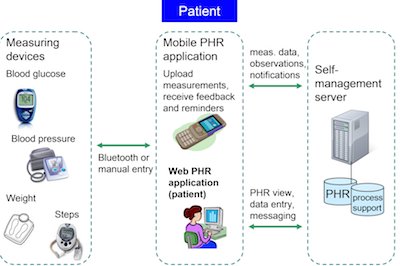 Patients with diabetes may be more likely benefit from a mobile phone-based health coaching program with remote monitoring than patients with heart disease, according to a study of 267 heart patients and 250 diabetes patients, which was conducted in 2012 by researchers in Finland and published in the Journal of Medical Internet Research.
Patients with diabetes may be more likely benefit from a mobile phone-based health coaching program with remote monitoring than patients with heart disease, according to a study of 267 heart patients and 250 diabetes patients, which was conducted in 2012 by researchers in Finland and published in the Journal of Medical Internet Research.
The trial lasted one year and examined whether using a mobile phone-based health coaching program with remote monitoring could improve the health-related quality of life and clinical measures of patients with type 2 diabetes and either ischemic heart disease or heart failure. The trial was completed in December 2012.
The remote patient monitoring system, eClinic, was supplied by Finland-based Medixine. Participants could either manually enter data from personal health devices into the mobile PHR app or the devices could transmit the data to the app via Bluetooth.
Researchers, who conducted their trial at the South Karelia Social and Health Care District, randomly selected people via the health organizations EHR system. Patients in the intervention group received calls from health coaches every four to six weeks. During the trial, patients were prompted to self-monitor their weight, blood pressure, blood glucose, for patients with diabetes, and steps, for patients with heart disease, once a week.
During their first health coach call, the coach performed a comprehensive evaluation of the patient’s clinical, mental, and social condition. The coach also discussed health behavior changes with patients and helped them create a self-management plan.
Patients in the control group received standard care. This included receiving a disease management information booklet at the time of diagnosis, taking laboratory tests once, and either attending one appointment or receiving a call from a nurse or doctor. Patients were able to contact health care services any time they felt they needed to.
While a total of 267 patients with heart conditions and 250 patients with diabetes enrolled in the trial, 246 and 225 patients, respectively, concluded the trial end-point assessments. Some participants withdrew from the trial because they were unfamiliar with mobile phones.
According to researchers, "the majority of the patients adhered to the home telemonitoring plan and frequently monitored at least one of the required health parameters," but "the intervention showed no statistically significant benefits over the current practice with regard to health-related quality of life".
Researchers added that they do not yet know the long-lasting benefits of the intervention. They also said there were indications that the intervention had different effects on heart disease patients and diabetes patients and that diabetes patients could be more likely benefit from this kind of intervention.
















